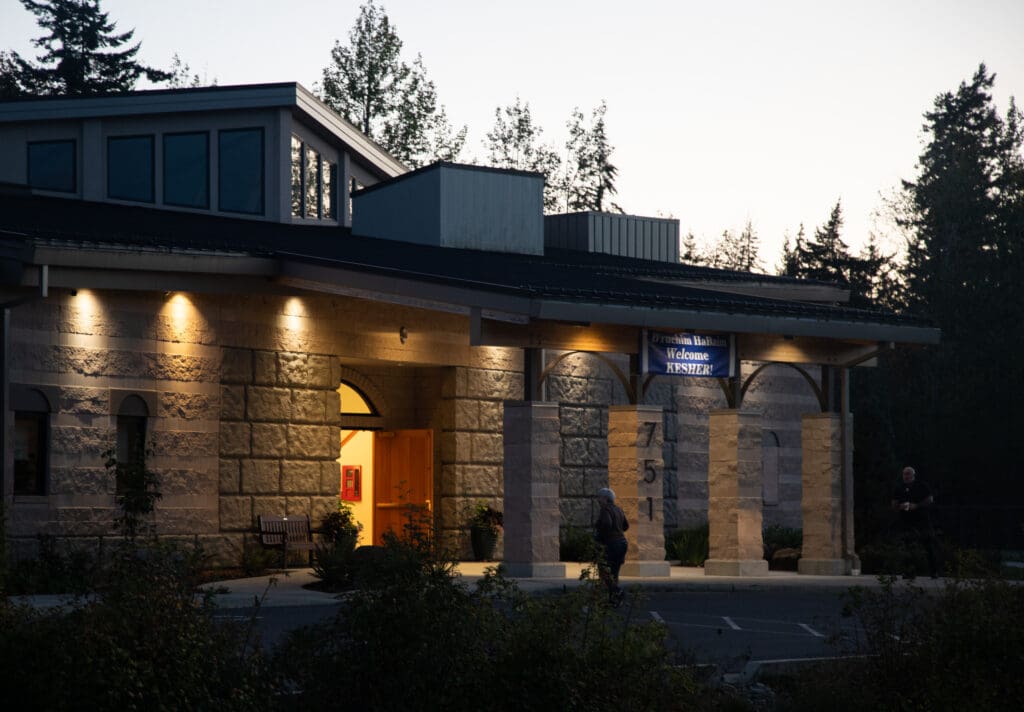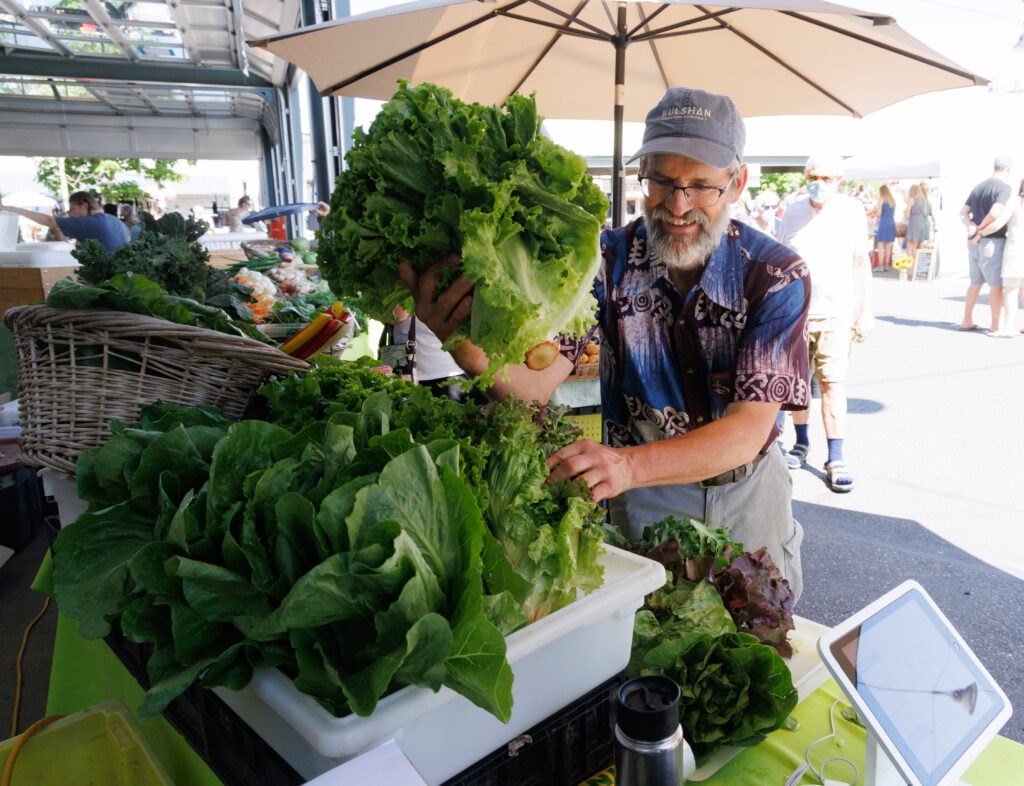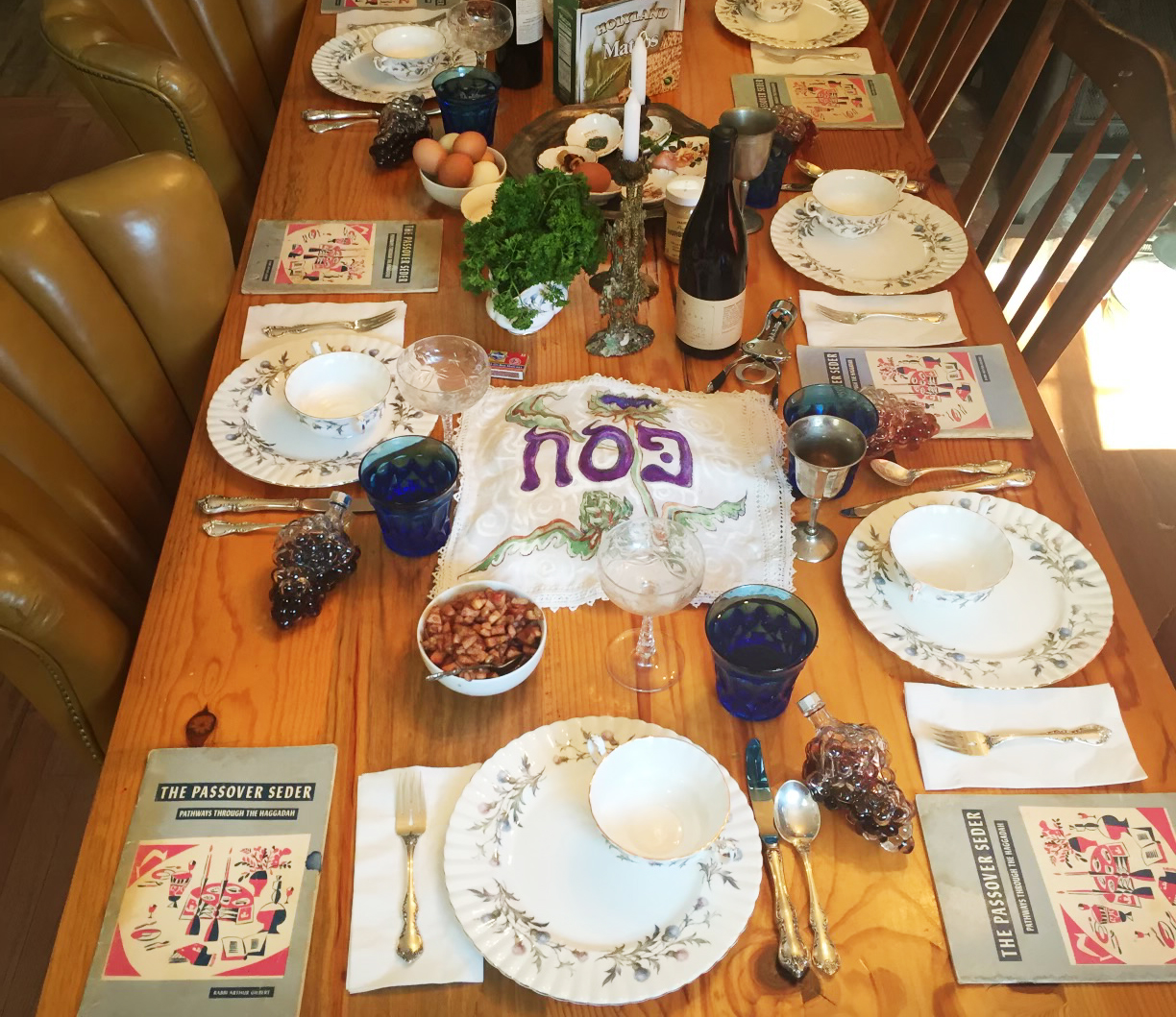Monday, April 22 at sundown marks the beginning of the week-long Jewish holiday of Passover, or Pesach. Here is a resource guide for those who wish to know more about the traditions and symbolism, plus information about local services and Seders.
Bellingham Seders and services
Passover, a significant event in the Jewish calendar, is celebrated by Jews all over the world. It commemorates the biblical story of the Jewish people’s escape from slavery in Egypt in the 13th-century B.C.E. This story about collective liberation, renewal and hope is especially poignant in this time of profound tragedy and conflict.
For some context, Passover is celebrated through communal meals known as a Seder, avoiding leavened bread and products, attending services and resting or abstaining from work. The Passover Seder (feast) is a ritualized ceremony of many elements, including a Seder plate (a ceremonial platter filled with symbolic food) and four glasses of wine. Before, during and after the meal, a Haggadah (Passover booklet) is read for prayers, questions and narrative of the Jewish people escaping slavery in Egypt.
“Passover is really about remembering and teaching our narrative to the younger generations; it is our story of how we became a people,” said Rabbi Joshua Samuels of Congregation Beth Israel in Bellingham. “The Passover story forces us to think beyond our own stories and about others.”
For those wishing to celebrate Passover, Congregation Beth Israel holds a kosher Passover Seder every year, this year catered by Taste of Elegance. While registration is now closed for this Seder, the community is warmly welcomed to attend the Passover service on Friday, April 19 at 6:15 p.m. and its “Tot Shabbat” or Toddler Friday Event on April 20.
The Rohr Center for Jewish Life, Chabad of Bellingham and Western Washington University will hold their Seder on April 22. All are welcome, and they describe their Seder as “user-friendly” and “not prayer-intensive, so everyone can feel welcome.”

Sourcing ingredients for Seder plates
One of the most fascinating aspects of Passover is its diversity. No family celebrates it quite the same: Some communities celebrate every night, while others do just a Seder on the first and last night. There are thousands of Haggadah choices out there, each offering a unique perspective. Some people prefer to get through the ritual parts as fast as possible, while others love to linger over the liturgy.
Not every Passover Seder plate is the same either; for example, the lamb shank can be swapped out for a vegetarian option, like a beet or a yam. In contemporary times, adding an orange to represent the voices of women and LGBTQ+ people — who are often marginalized or silenced in preserving history — has become common. Garlic has also become popular as a reminder that liberation is about the liberation of all people, and community care must be centered.
The downtown Bellingham Community Food Co-op has a Passover display full of essentials, such as matzah (unleavened bread). Matzah, eaten throughout the Seder, represents the bread that the Jewish people made before escaping, which didn’t have time to rise.
For eggs, a symbol of mourning, the Co-op offers cartons from local farms such as Spring Creek Heritage Farms in Bellingham and Misty Meadows Farm in Everson. The Co-op also sells non-kosher lamb shank, which represents the blood painted over the door of Jewish people’s doors so that the Angel of Death would pass over their homes. Meanwhile, Trader Joe’s sells kosher meat, including brisket, a common Passover meal.
Karpas (fresh greens), maror (bitter herbs) and all the ingredients for charoset (an apple paste) can all be found at the Bellingham Farmers Market. Fresh greens, a symbol of hope, can be anything from parsley to green onions, so why not grab something in season?

Bitter herbs represent the bitterness of slavery. The traditional choice for bitter herbs is horseradish, but you could also grab ginger or go foraging for dandelion greens. While harvesting dandelion greens, avoid sprayed areas and pick greens that have not bloomed yet.
Apple paste symbolizes the bricks Jewish enslaved people used to create structures such as the pyramids of Egypt. You can find fresh apples at the Co-op or Farmers Market, or go to Bellewood Farms in Lyden to visit their bakery and orchards.
Finally, to learn more about Passover, Village Books currently displays children’s and middle-grade books. In its Jewish section, it has a contemporary Haggadah by Alana Newhouse, created alongside Tablet Magazine, a Jewish magazine.




